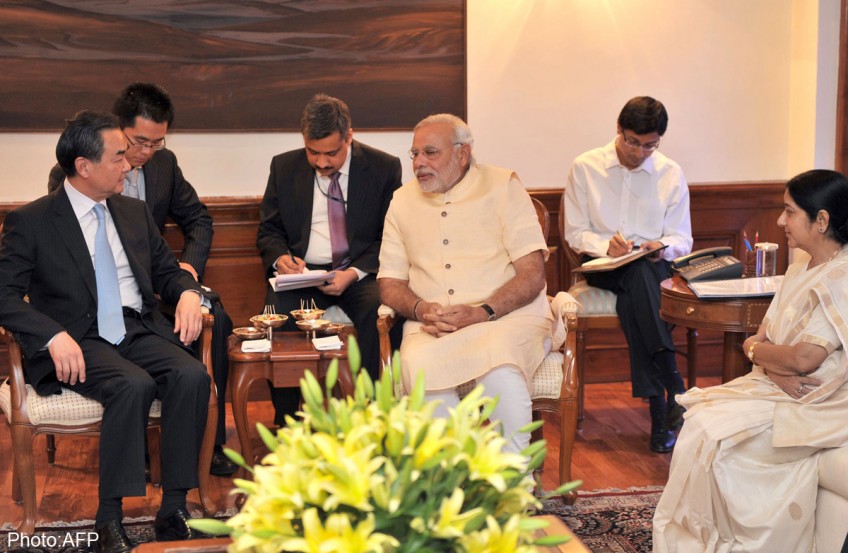India pushing ties with China

The new Indian government injected some momentum into ties with China saying it would "engage energetically" with its largest trading partner as Prime Minister Narendra Modi met Beijing's top diplomat.
Mr Modi and Foreign Minister Wang Yi, who was in India for a two-day visit as the special envoy of Chinese President Xi Jinping, discussed bilateral issues yesterday.
Ahead of the meeting, Indian President Pranab Mukherjee, addressing Parliament on the government's priorities, said India would engage energetically with China among others to push strategic ties, but would not shy away from "raising issues of concern... at a bilateral level" with any country.
Apart from boosting economic ties, cooperation in the area of counter-terrorism is expected to be high on the agenda of the two Asian giants.
China and India share concerns about terrorism. The Chinese government recently launched a campaign against Muslim Uighur separatists, whom it blames for fuelling violence in Xinjiang. India, for its part, has been the target of attacks by terror groups from across the border in Pakistan.
The two neighbours, however, have an uneasy relationship, with a festering dispute along parts of their 4,000km border a constant source of tension between them.
But economic ties have soared, with bilateral trade going past US$70 billion (S$87 billion).
Foreign policy analysts say the Chinese are keen to renew bilateral ties with India under Mr Modi, who visited China four times as Gujarat chief minister.
"The Chinese are banking on the last four visits of Modi. With that, they approach the new government and want to start a new chapter (in ties)," said Professor Srikanth Kondapalli, of New Delhi's Jawaharlal Nehru University.
Mr Wang in an interview with an Indian newspaper published on Sunday said China wanted to "cement existing friendship and explore further cooperation".
But it is not just the Chinese who are reaching out to the new government. The United States and Japan have also been wooing Mr Modi, who came to power on a massive mandate.
The Indian Prime Minister is expected to meet US President Barack Obama in September in Washington. But before that, he will travel to Japan next month where he will hold talks with Japanese Prime Minister Shinzo Abe.
In his speech to Parliament, Mr Mukherjee also singled out Japan for mention, saying India "will strive to make progress in the many initiatives that are ongoing with Japan, especially in the field of building modern infrastructure" in India.
Mr Modi, whose Bharatiya Janata Party won a landslide victory in last month's general election on a pledge to fix India's slowing economy, has set economic revival as his priority.
Thus, say analysts, it can be expected that his government's economic goals will fuel his foreign policy.
In Mr Wang's meeting with his Indian counterpart Sushma Swaraj on Sunday, economic issues occupied a major part of their talks, Indian officials said, adding it was "a productive beginning" to ties.

This article was first published on June 10, 2014.
Get a copy of The Straits Times or go to straitstimes.com for more stories.